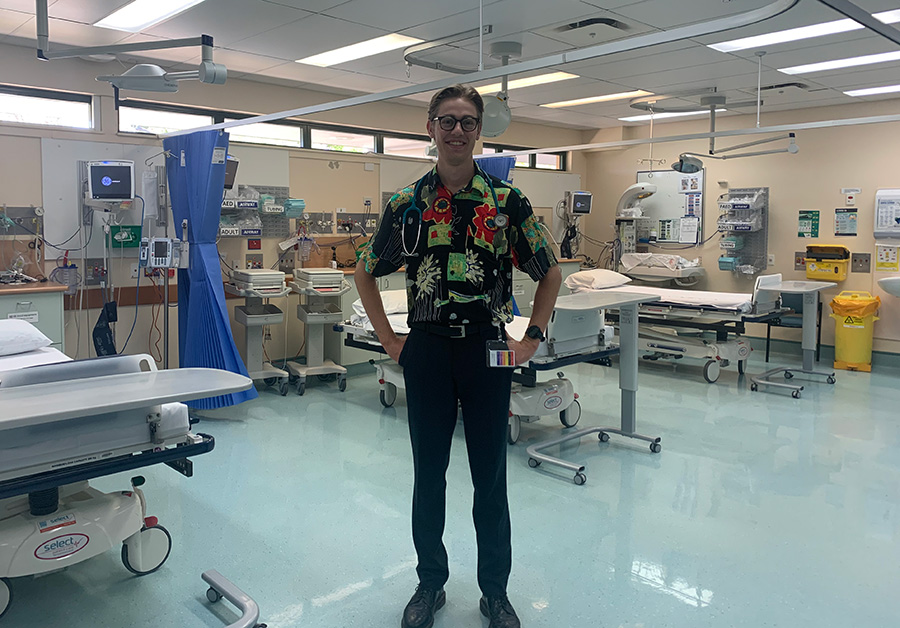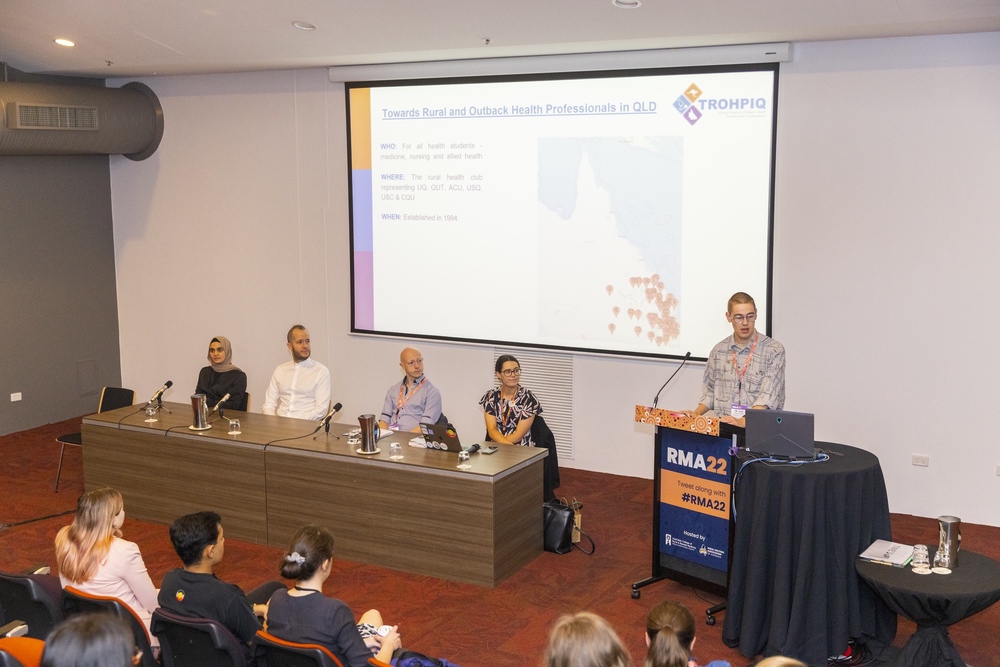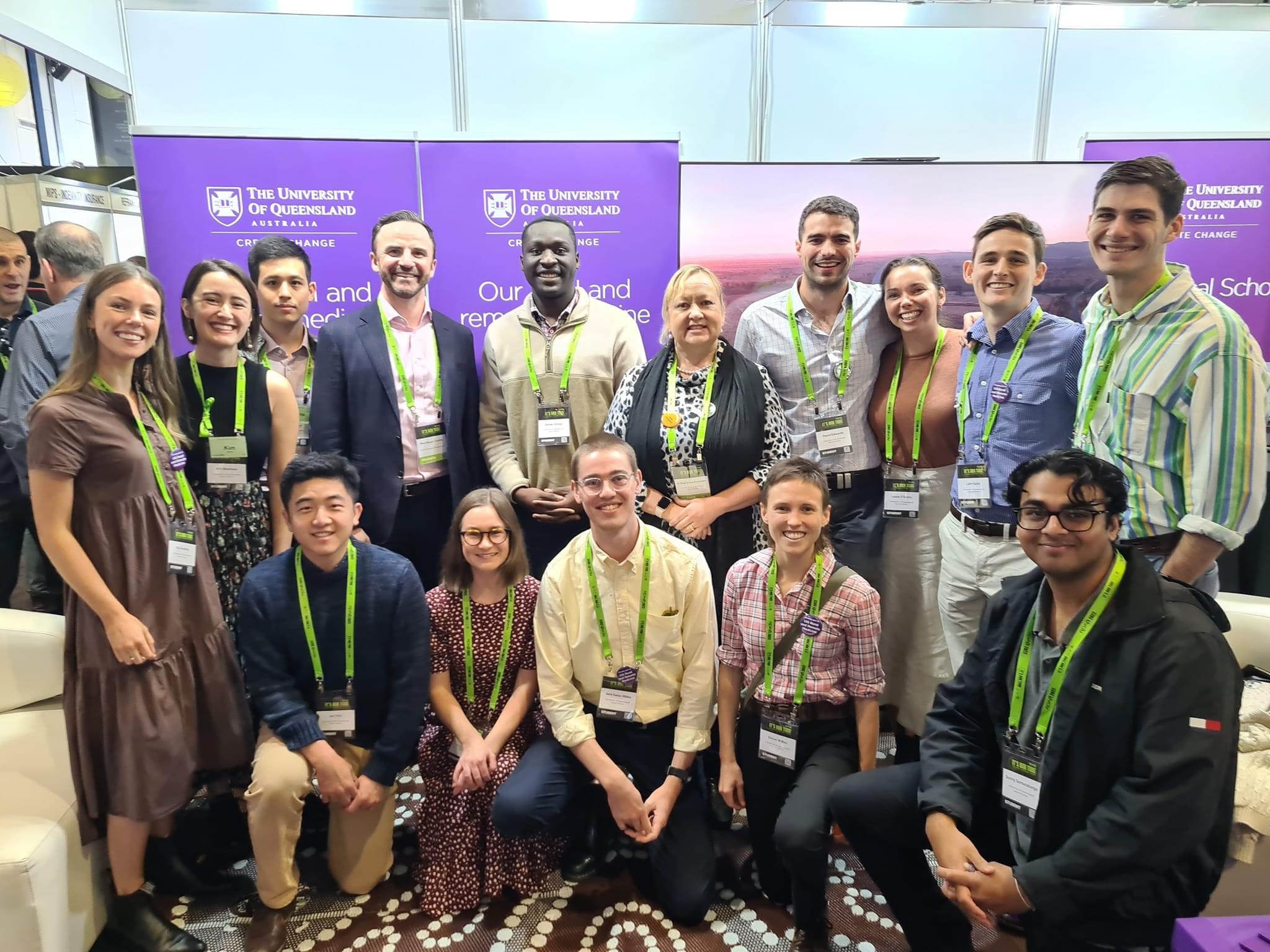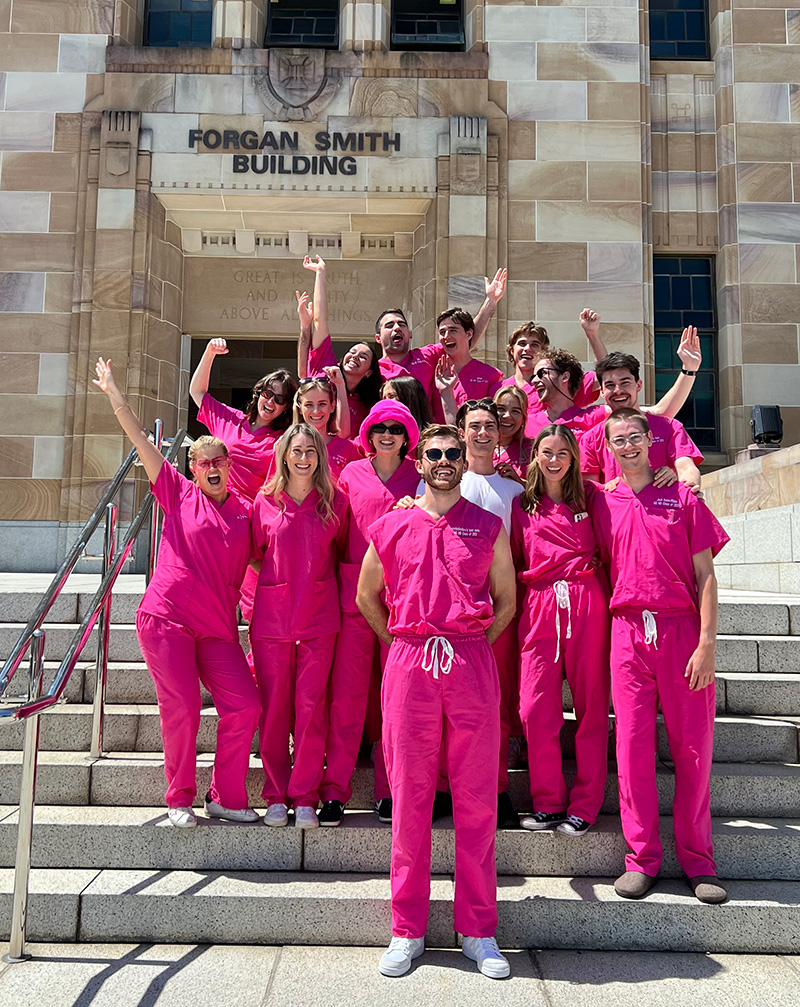Medical graduate preaches rural medicine as the key to balance
 When you look at the exhaustive list of placements, opportunities, awards and projects taken on by Jack Kelso-Ribbe in the last four years, it would come as no surprise that he will add medical graduate to his books this Friday.
When you look at the exhaustive list of placements, opportunities, awards and projects taken on by Jack Kelso-Ribbe in the last four years, it would come as no surprise that he will add medical graduate to his books this Friday.
Jack is set to move from student to doctor in 2024, after embracing many wonderful opportunities that have seen him help build and develop student experiences in rural and remotes areas, and improve the health outcomes of these communities.
This is all while maintaining great grades through medical school.
The standouts of his impact and recognition include his work in establishing a new scholarship program for medical students as president of TROHPIQ – a rural health club offering placements, experiences and opportunities to medical, nursing and allied health students.

Jack is also a co-founder of the VacSeen Project, together with several other UQ final year medical students, a service helping to vaccinate homeless people in South East Queensland against influenza for free.
He has also received varying awards from Rural Doctors Association Queensland (RDAQ) and Rural Medicine Australia (RMA).
Jack says that the strong influence of science in his early years and a motivation to work with people led him down the path of medicine.

“My father was a researcher and after high school I started exploring research myself through my honours degree at the Queensland Brain Institute,” Jack said.
“It’s here that it really dawned on me that I had a motivation to work with people and work towards their goals for good health.
“In addition to this, when travelling to visit my mum's family in the small rural town of Inverell in NSW as a child, I was acutely aware of the distances that my grandparents needed to travel in order to access care.
"I am still aware of how these access barriers persist, as now my aunt and uncle need to drive hours from Inverell to Brisbane each month just to receive appropriate access for their own healthcare.” he said.
 Jack was lucky enough to be accepted to rural and remote placements in almost every year of his degree and found the experiences led him to find a ‘family’ and a strong sense of belonging with the warm and welcoming rural fraternity.
Jack was lucky enough to be accepted to rural and remote placements in almost every year of his degree and found the experiences led him to find a ‘family’ and a strong sense of belonging with the warm and welcoming rural fraternity.
“I have met future defining mentors at various conferences such as RDAQ and RMA and across my rural placements,” he said.
“These people have had a huge positive influence in me choosing to join the Queensland Rural Generalist Pathway as an intern in 2024.
Never before have I felt the medical hierarchy dissolve that might otherwise exist in the traditional urban hospital environment.”
Over the space of his studies, Jack had his first theatre experience in Beaudesert through the TROHPIQ TREES Observership Program, met the passionate and hard working rural doctors in Cairns through the John Flynn Placement Program, became part of the clinical rotations during his year-long placement at the Regional Clinical Unit in Bundaberg, was mentored and coached by experienced clinicians in his rural and remote rotation in Theodore and felt the buzz of the busy Emergency Department on Thursday Island.
Jack says that rural medicine is the perfect crossroads of a flexible lifestyle, rewarding career, stimulating clinical environment and fantastic community immersion that can equip a person with the skills to adapt to future career fluctuations.
“Telling my story to promote rural medicine excites me to no end. Whether it be to future generations or my fellow peers,” Jack said.
“Not only do I wholeheartedly see myself as a future rural clinician; I can envision it being the perfect career choice for many of my peers and many don’t realise it’s an option.
“It has the potential to take you around the state, country and overseas, working for the smallest community health service, right through to the World Health Organisation.”
Rural medicine has been the common thread in the most influential mentors and experiences Jack says he’s had.
“If I can share the highlights of my journey with others, then hopefully more people will consider a career in rural health and in turn this will benefit the communities they find themselves living in,” he says.
